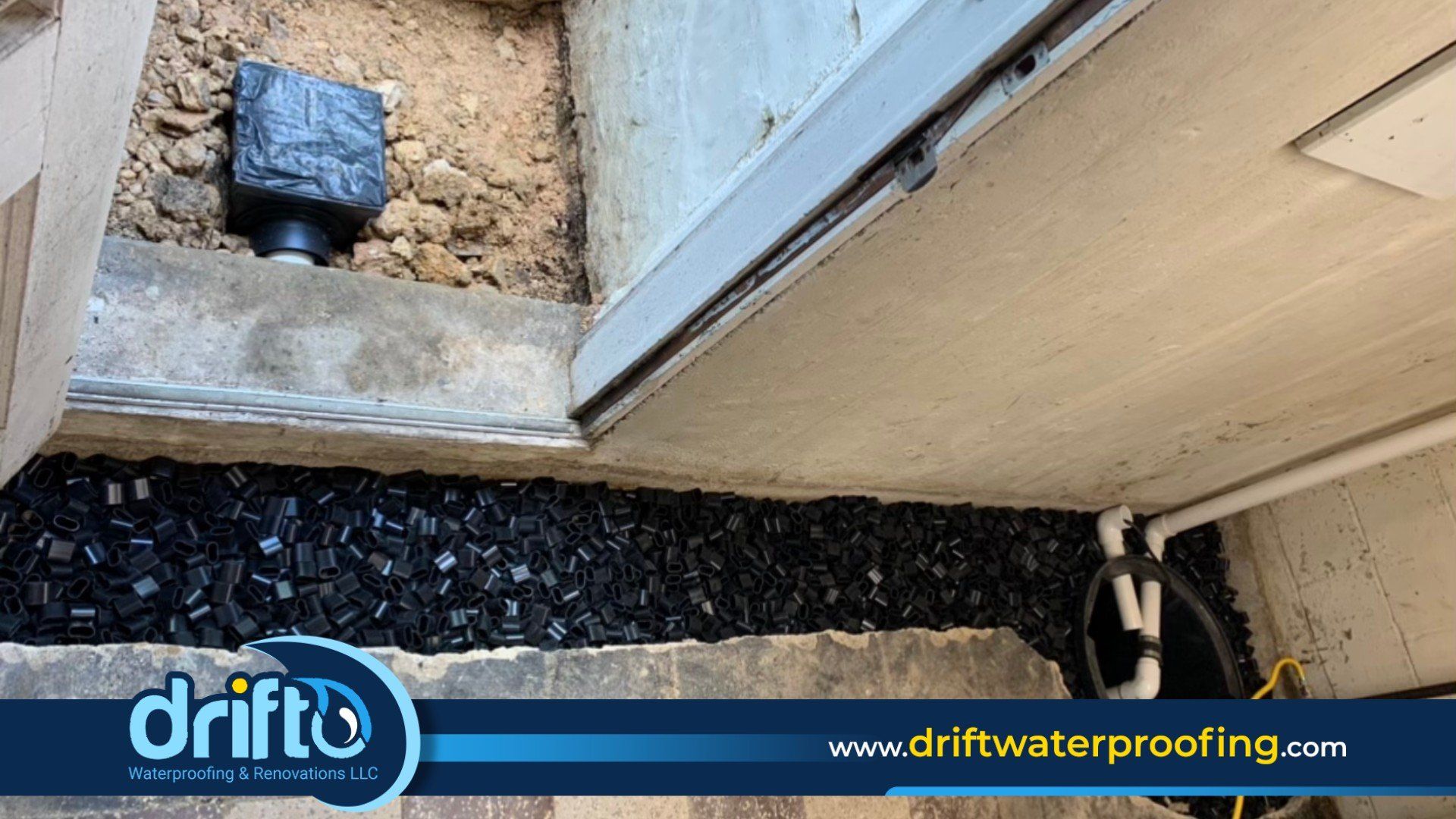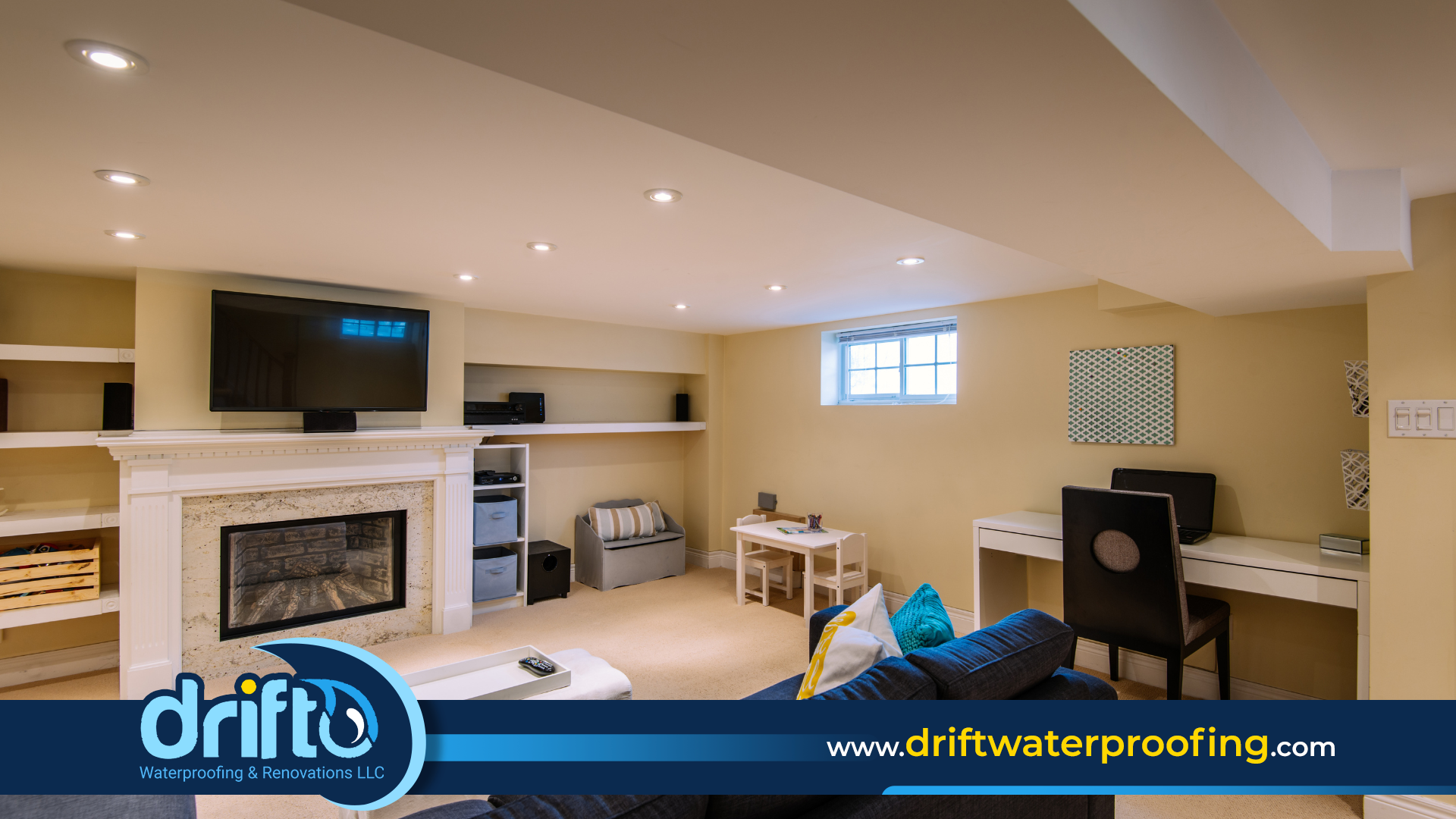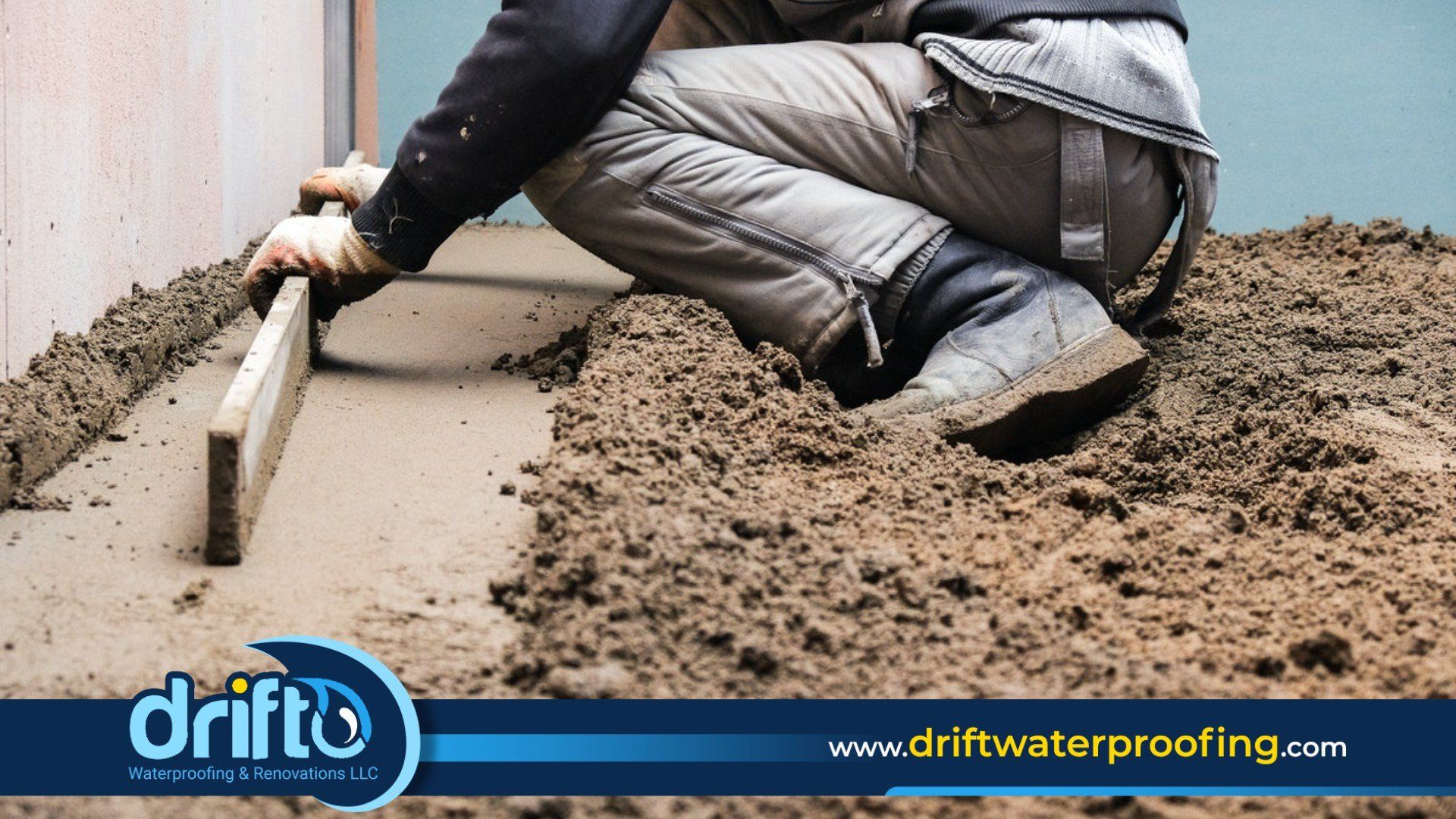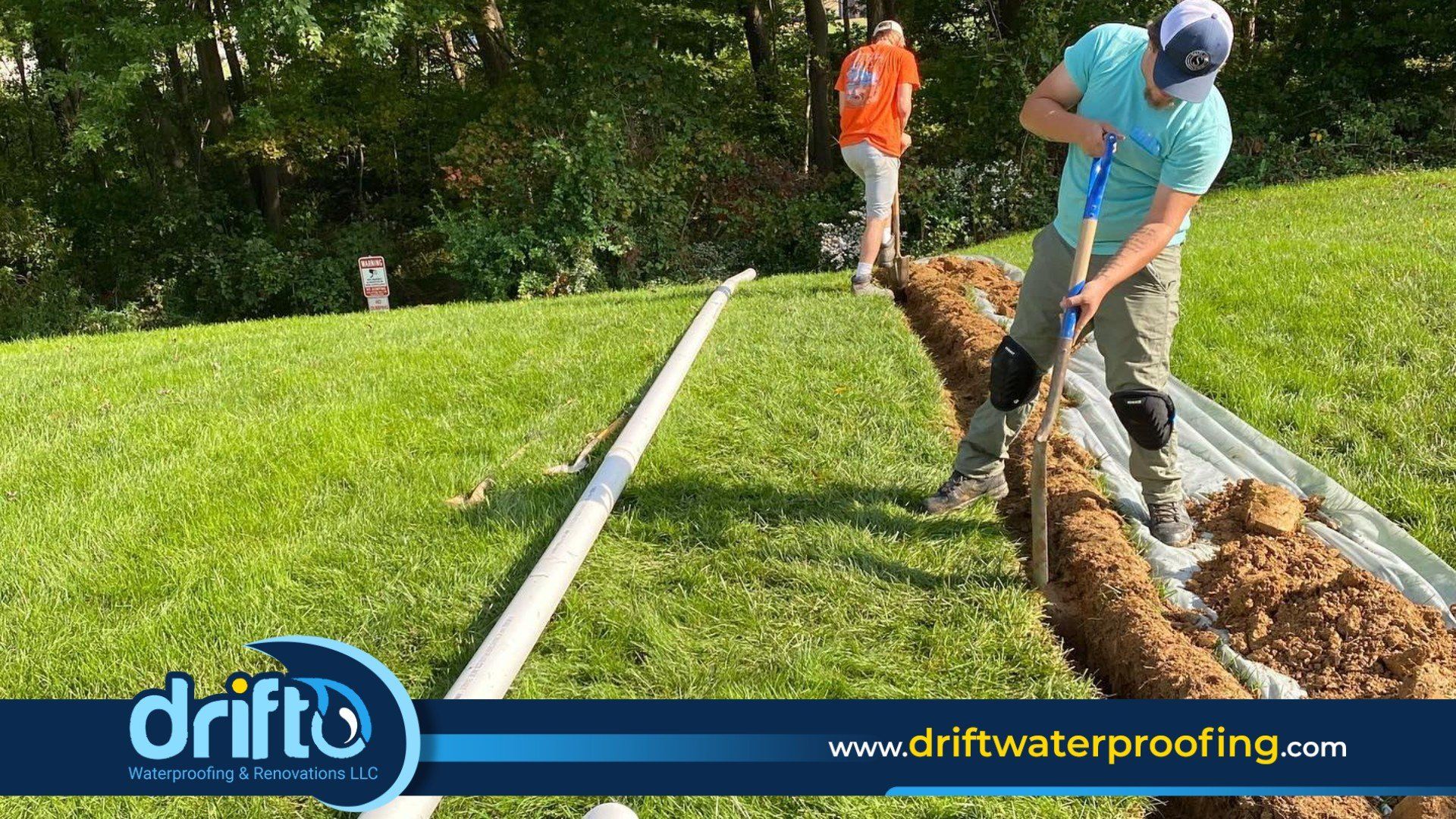Basement waterproofing is a critical part of maintaining your home's structure. When water finds its way into the basement, it can cause costly damage that may require professional repair or replacement. Fortunately, there are several methods you can use to keep water out of your basement and ensure it remains dry and structurally sound.
Gutters and Downspouts
One of the most effective ways to prevent water leakage in your basement is by installing gutters and downspouts around the perimeter of your home. Gutters capture rainwater runoff from the roof and direct it away from your foundation through downspouts, thus preventing water from seeping into the basement walls. Be sure to regularly clean the gutters to prevent clogs that could cause water to overflow onto the ground near your foundation. You may also want to consider installing a sump pump or other drainage system if you live in an area prone to flooding or heavy rains.
Vapor Barrier
Another method for interior basement waterproofing is the installation of a waterproof vapor barrier on the interior of your foundation wall. This serves as a thermal break between your cold wall and your warm basement and will direct any moisture and condensation into the drainage system below.
When installed correctly, it protects all of your new building materials, such as studs, drywall, and flooring, from moisture.
Make sure you seal all pipe penetrations and apply antimicrobial to the wall before installing a vapor barrier. A vapor barrier on the wall will also help with humidity issues.
Interior Drainage System
If you have an existing foundation, then installing or repairing an interior drainage system can help protect against leaks caused by groundwater pressure building up outside your foundation walls. This kind of system essentially works as a catch basin for any moisture that may enter through cracks or gaps in your foundation walls, allowing it to be drained away rather than pooling inside your basement space. Be sure to contact a professional if you need assistance with this type of project, as it can be quite involved depending on how much work needs to be done before installation begins.
What are some common causes of basement water problems?
Do you find yourself constantly dealing with water damage and mold issues in your basement? There are several common causes of basement water problems, and it's important to identify them so that you can take steps to prevent further damage. This blog post will discuss some of the most common causes of basement water problems and how you can fix them.
1. Improperly functioning gutters
The gutters on your home are designed to catch rainwater and redirect it away from your house, but if they're not functioning properly, the rainwater won't be diverted correctly and can seep into your basement. Make sure all the gutters around your home are free from debris and clogs or consider installing gutter guards for extra protection.
2. Poor drainage around the foundation
The soil around the foundation should slope away from your home at least six inches every 10 feet. If this isn't done correctly, then it's possible that water is pooling near the foundation, which can cause seepage into the basement. Check periodically to make sure that there is proper drainage around your foundation.
3. Cracks in walls or floor
If there are any cracks in your walls or floor, a professional contractor should inspect them as soon as possible as they could be signs of a more serious problem, such as structural damage or a leaking pipe. A professional can repair any existing cracks and help prevent further water damage in your basement.
4. Leaky pipes or appliances
If you notice any leaking pipes or appliances in your basement, you should call a plumber immediately to fix them before any major water damage occurs. A simple leaky pipe can quickly become an expensive repair job if left unchecked for too long!
5. High humidity levels
High humidity levels can lead to condensation buildup on walls and pipes, eventually leading to water leaks and other problems in your basement over time. Invest in a dehumidifier to keep relative humidity levels low throughout your home - especially the basement - so that you don't have to deal with moisture-related issues down the line.
What are some telltale signs that your basement needs waterproofing?
Did you know that a wet basement is the leading cause of structural damage in homes? If your basement is leaking, it can cause expensive damage to your home’s foundation and lead to mold, mildew, and other hazardous growth. It’s important to be aware of signs indicating that your basement needs waterproofing. Here are some telltale signs that you should look out for.
Musty Odors
If you start noticing a musty smell coming from your basement, this could indicate that water is seeping into your basement walls or floor. Musty odors are caused by mold and mildew, which thrive in damp environments. If you detect any strange odors from your basement, it’s best to look into waterproofing as soon as possible.
Stains on Walls or Floors
Another sign of a leaky basement is visible stains on the walls or floors. These spots usually appear as dark patches or streaks and may be accompanied by peeling paint, bubbling wallpaper, or warped wood paneling. If you see any discoloration on your walls or floors, it’s best to call a professional to assess the situation and determine if waterproofing is needed.
Pooled Water
If you notice puddles forming around your foundation walls or floors, this could also be an indication that water is seeping through cracks in your foundation wall. Pooled water can quickly cause damage to your home's structure, so it’s important to take action immediately if this occurs. A professional contractor can identify where the water is coming from and provide solutions such as interior drainage systems or exterior waterproofing membranes to keep moisture from the foundation walls.
How can you prevent basement water problems in the first place?
Basement water problems are among the most common and costly home repairs. From flooding to mold growth, water can wreak havoc on your home if it isn’t properly managed. Fortunately, there are preventative measures you can take to reduce the chances of basement water issues. Here’s what you need to know about preventing basement water problems in the first place.
Check Your Gutters and Downspouts
The gutters along your roof should be checked regularly for clogs or debris that could impede drainage. The downspouts should also be clear and free of any blockages. If you notice any clogs, clear them out so that rainwater can drain away from your foundation instead of pooling around it. Additionally, make sure your downspouts extend several feet away from your house—at least six feet is ideal—so that the runoff has somewhere to go without seeping into the soil near the foundation walls.
Install a Sump Pump
A sump pump is a great way to keep your basement dry by pumping excess groundwater away from your home before it has a chance to cause serious damage. Make sure the sump pump is installed correctly and check it periodically for debris or other blockages that could inhibit its performance. You may also want to consider installing a battery backup system with the sump pump. Hence, it continues working even if there’s an interruption in power supply due to severe weather or another emergency situation.
Check Your Foundation Walls and Floors
The walls and floors of your basement should also be inspected regularly for signs of moisture or cracks that could allow water inside. If you notice any cracks, have them sealed right away by a professional contractor specializing in foundation repair—this will help ensure that they are fixed properly and won’t cause further problems down the line. If you have an older home with stone foundations, consider hiring a masonry specialist who can assess any potential issues before they become serious concerns.
What are some of the best methods for interior basement waterproofing?
Wet basements can cause costly damage to your home, leading to mold, mildew, and other structural issues. The best way to prevent these problems is by installing proper interior basement waterproofing. Here are some of the best interior basement waterproof methods to keep your home dry and safe from water damage.
Interior Waterproofing System
An interior waterproofing system is a great way to protect your basement from moisture infiltration. This system consists of an interior drain tile, sump pump, and drainage board that will catch water before reaching inside your walls and floors. The drain tile runs along the foundation wall below the floor slab of your basement and collects any water that penetrates the walls. The excess water is then redirected away from your home and into a drainage area such as a dry well or storm drain.
Another key part of an interior waterproofing system is a sump pump, which helps to expel any collected water out of the basement. Finally, drainage boards can also be installed along the basement walls, which will help keep moisture out while still allowing air to pass through. All these components work together to effectively protect against basement water intrusion.
Exterior Drain Tile System
An exterior drain tile system is another effective method for keeping moisture outside your home’s foundation walls. This type of system works by redirecting surface runoff away from your house with a series of pipes and drains installed around its perimeter. These pipes collect water before it has a chance to penetrate into your home’s foundation walls or flood your basement floor with standing water. Exterior systems are particularly effective during heavy rains because they prevent surface runoff from entering through cracks or openings in the foundation wall.
For areas prone to flooding, you may want to consider installing an exterior sump pump and an exterior drain tile system for maximum protection against water intrusion into your home’s foundation walls or basement floor slab.
How do you know if you need a professional to help with your basement waterproofing project?
Basement waterproofing is an important part of home maintenance, and it’s important to know if you need the help of a professional. If your basement is constantly wet or if you notice mold and mildew, then it’s time to take action. But should you take on the project yourself or hire a professional to do the job? Let’s explore what signs tell us that we should hire an expert.
Signs You Need Professional Help
The first sign that you need to hire a professional is if your basement has been flooded more than once in recent months. This may be due to heavy rains, broken plumbing, poor landscaping, or poor drainage around your foundation. A professional can assess the situation and develop a plan for repairing and preventing future flooding.
If there are signs of water damage, such as mold, mildew, or discoloration, in your basement walls or floors, then you should also consider hiring a professional. These are all indicators that there is moisture coming from somewhere, which needs to be addressed quickly before it causes further damage. A professional can also identify any structural issues with your foundation walls that may have caused the water damage in the first place and make repairs where necessary.
In addition, if you notice any cracks in your foundation walls, then this is another sign that it’s time to call in an expert for help with basement waterproofing. Cracks can allow water into your basement and cause costly damage over time if not addressed quickly enough. A professional can seal these cracks using specialized materials designed specifically for this purpose.
What are some common mistakes people make when waterproofing their basements?
If you’ve got a basement, you know the importance of waterproofing it. But some common mistakes that homeowners make when trying to waterproof their basements can cause more damage than good. Here are the most common basement waterproofing mistakes and how to avoid them.
Not Fixing the Source of Water Intrusion
When attempting to waterproof your basement, it is essential that you also identify and fix the source of water intrusion. Without addressing this issue, your basement will remain vulnerable to water damage and mold growth no matter what type of waterproofing solutions you apply. It is important to find out where the water is coming from and if any structural issues are causing the leak before you attempt any repairs or waterproofing solutions.
Forgetting About Ventilation
Another common mistake homeowners make when waterproofing their basements is forgetting about ventilation. Proper ventilation helps keep moisture in check by replacing damp air with fresh, dry air from outside. Installing an exhaust fan in your basement can help reduce humidity levels and keep mold at bay. Additionally, be sure to open windows periodically for proper air circulation in your home during hot, humid days.
Using Improper Materials
Using improper materials for your basement waterproofing project can increase moisture levels and mold growth over time. To avoid this mistake, make sure you use high-quality materials such as sealants and membranes specifically designed for basement walls and floors. Also, it’s best to hire a professional contractor if you aren’t confident in correctly installing these materials yourself.
Waterproof Your Basements with Our Top-notch Services!
Waterproofing your basement is essential to prevent long-term water damage and mold growth. However, some common mistakes people make when trying to waterproof their basements can cause even more problems down the line. Be sure to identify and fix the source of water intrusion first, always remember ventilation is key, and use only high-quality materials for basements when tackling this project yourself or hiring a professional contractor! With these tips in mind, you should have no problem keeping your basement dry all year round!
Contact Drift Waterproofing & Renovations Today!
Drift Waterproofing & Renovations will do everything we can to ensure your experience with us is excellent.
Request A FREE Estimate
Request a Free Estimate Form
Checkout Recent Post
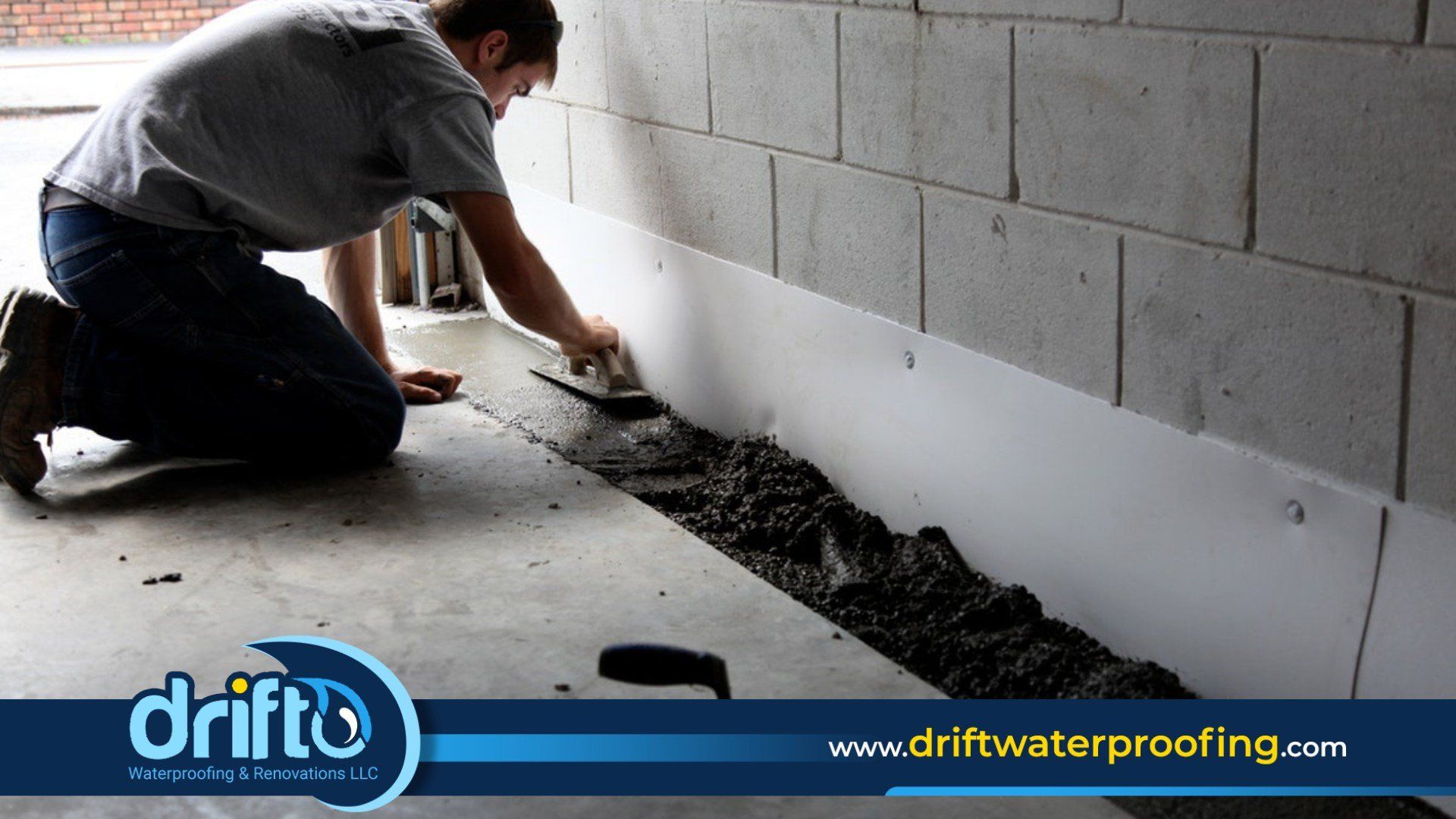
Got a Question? We’re Here to Help.
You can arrange an appointment or make an enquiry by phone or email, orget in touch to us via our contact form.

